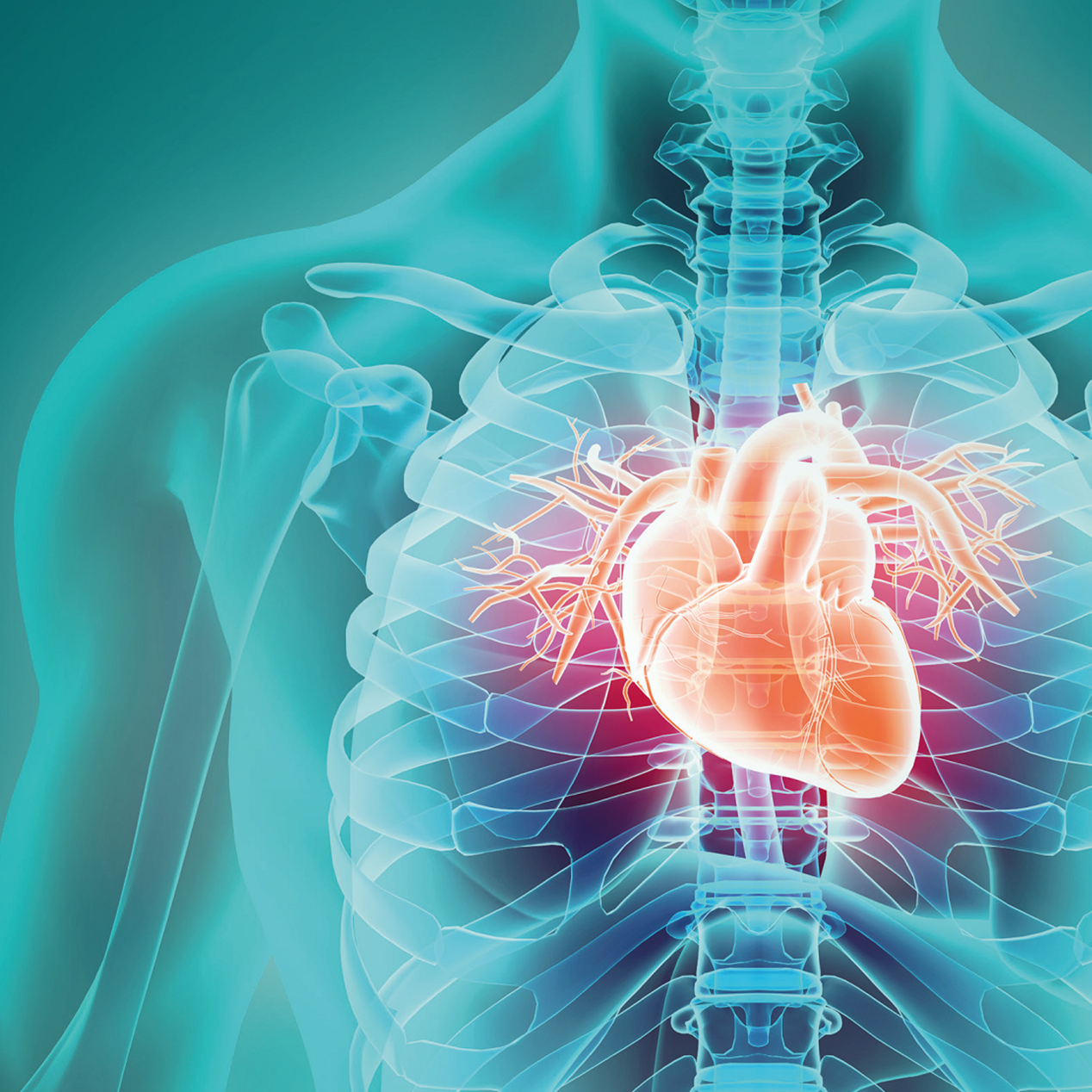Cholesterol is a waxy, fat-like substance that is made by the liver and can also be found in the foods you eat. It has essential functions in the body, being an important constituent of cells, specifically cell membranes, and hormones, such as oestrogen, testosterone and cortisone.
Although the body needs cholesterol to function properly, too much of it can lead to health problems. Here, we will explore what high cholesterol is, who is at risk, and how it is diagnosed and treated.
Types of cholesterol
High cholesterol or hypercholesterolemia refers to excessively high levels of a specific type of cholesterol called LDL or low-density lipoprotein cholesterol. This is more commonly known as ‘bad’ cholesterol. It is responsible for the build-up of sticky plaques along the insides of the blood vessels that carry oxygen-rich blood throughout your body (arteries).
Excessively high levels of LDL cholesterol increase the risk of cardiovascular disease, heart attack and stroke.
The other type of cholesterol is HDL or high-density lipoprotein cholesterol, which is more commonly known as ‘good’ cholesterol.
HDL is a lipoprotein that binds to excess cholesterol in your bloodstream and transports it to your liver where it is eliminated. Specifically, your liver uses enzymes to convert cholesterol into bile salts; bile salts form part of bile that is released into your gut to aid digestion.
Risk factors and causes of high cholesterol
High cholesterol can result from a variety of factors, some of which you can’t control, such as your genetics, and some of which you can, such as your diet.
If you have a family history of a hereditary type of high cholesterol called familial hypercholesterolemia — one of several lipid disorders — you will have elevated levels of ‘bad’ (LDL) cholesterol from birth.
Lifestyle factors affect your risk of developing high cholesterol that is unrelated to your genetics. This includes following a diet high in saturated fats and trans fats, not exercising regularly, smoking, drinking too much alcohol and being overweight or obese.
Your age is also a risk factor. As you age, your cholesterol levels will rise. Men tend to experience high cholesterol earlier than women.
Symptoms of high cholesterol
One of the dangers of high cholesterol is that it doesn’t produce any symptoms until the damage caused by persistent high cholesterol causes an adverse event.
For example, as plaques in the arteries that supply your heart (coronary arteries) build up, blood flow to your heart becomes restricted, causing angina or in more severe cases, a heart attack. Similarly, if blood flow to your brain becomes restricted, you may have a stroke.
The absence of early symptoms is why you should have your cholesterol levels checked if you are overweight or obese, have a family history of high cholesterol or heart problems and/or are aged 40 or over.
High cholesterol vs high triglycerides
Cholesterol and triglycerides are both types of fat. As with cholesterol, triglycerides can be made by your liver and come from the food you eat.
Any excess calories you eat, in particular in the form of carbohydrates, are converted into triglycerides. If your triglyceride levels are too high, you can develop a lipid disorder called hypertriglyceridemia.
Hypertriglyceridemia is, therefore, a different condition from high cholesterol. However, you can have both conditions at the same time, which is called mixed dyslipidemia, and they share risk factors ie a high-fat diet, low levels of exercise and being overweight or obese.
Diagnosing high cholesterol
High cholesterol is diagnosed via a blood test that not only measures your total cholesterol levels but importantly also measures your LDL cholesterol, HDL cholesterol and triglyceride levels. This is called a lipid profile.
Whether or not you have high cholesterol will depend on the relative amounts of LDL cholesterol and HDL cholesterol in your blood.
Treating high cholesterol
In most cases, the first line of treatment for high cholesterol is lifestyle changes that will reduce your LDL cholesterol levels and increase your HDL cholesterol levels.
Lifestyle changes
Changing your diet helps to reduce your cholesterol. This includes reducing the amount of saturated fats, trans fats, full-fat dairy products and meat in your diet, as well as increasing the amount of fibre and omega-3 fatty acids in your diet.
Omega-3 fatty acids can be found in fatty fish, such as salmon, sardines, mackerel and herring, as well as flaxseeds, chia seeds, hemp seeds and walnuts.
Regular exercise of at least 150 minutes of moderate exercise spread across the week will help increase your HDL cholesterol levels and reduce your LDL cholesterol and triglyceride levels.
Through a combination of dietary changes and regular exercise, you can lose excess weight, which will further reduce your high cholesterol. Quitting smoking and limiting how much alcohol you drink will also help.
If lifestyle changes alone aren’t enough to reduce your high cholesterol or your cholesterol levels are very high, your doctor will recommend medication in addition to lifestyle changes.
Medications
The most common medications are statins, such as atorvastatin, fluvastatin, pravastatin, rosuvastatin and simvastatin. Statins interfere with cholesterol production in the liver and, therefore, reduce how much cholesterol your body can make.
If statins aren't effective or you have side effects that you can't tolerate, your doctor may recommend other medications, such as bempedoic acid, bile acid sequestrants, ezetimibe and fibrates.
Consequences of untreated high cholesterol
As mentioned earlier, high cholesterol narrows your arteries. This is called atherosclerosis and increases your risk of angina, a heart attack or stroke.
Atherosclerosis can also affect the arteries in your legs causing a cramping pain when you walk or run called claudication.
High cholesterol also increases your risk of pancreatitis, chronic kidney disease and high blood pressure.


